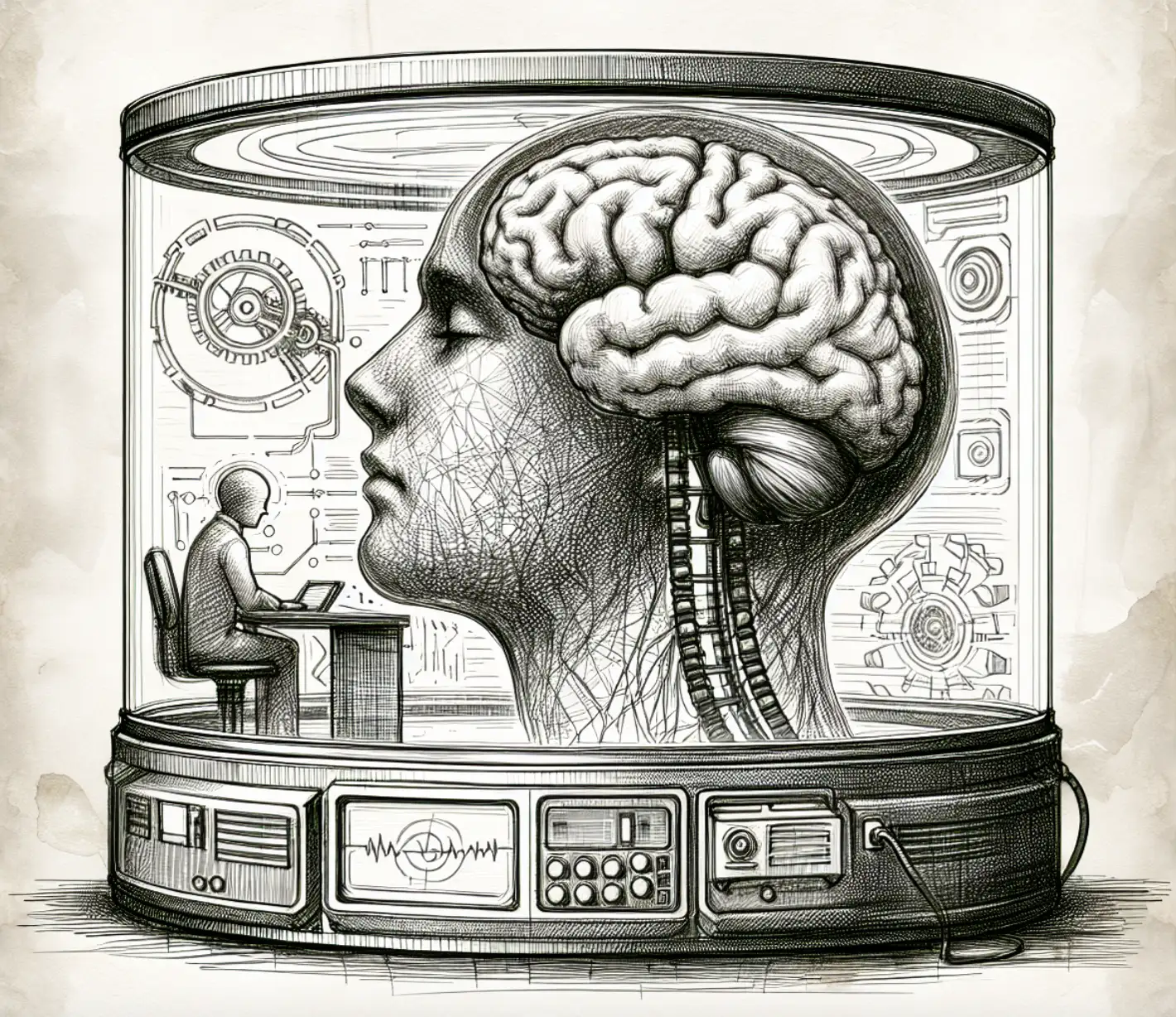Philosophical Reflections on the 'Brain in a Vat'

Translated by AI
What is a 'Brain in a Vat'?
The 'Brain in a Vat' is a captivating philosophical hypothesis that invites us to rethink our understanding of 'reality.' This bold idea posits: what if, one day, you discover that you are merely a brain placed in a vat of nutrients, and all your perceptions—of sight, sound, smell, even touch and emotion—are the result of signals sent to your brain by a supercomputer via electrodes? The 'reality' you experience might just be an intricate simulation created by a computer.
This hypothesis doesn't literally claim we exist in a fabricated world; rather, through an extreme scenario, it raises three profound philosophical questions: How can we know our world is real? Is 'perception' sufficient to prove existence? What is the true nature of 'reality'?
How Do We Know Our World Is Real?
This represents the core challenge of the 'Brain in a Vat' hypothesis. If all perceptions can potentially be deceived, how can we ensure our current experiences aren't simulated? This question brings to mind the movie The Matrix, where humans are implanted in virtual realities, unable to distinguish truth from fiction. More intriguingly, from an everyday perspective, we face similar 'perceptual confusions.' For instance, when dreaming, we often believe the dream world is real, only to realize upon waking that these were illusions woven by our brains. Thus, judgment of 'reality' seems not to derive from the reliability of senses but from deeper internal inquiries. Perhaps, because we can't certify absolute truth, we must constantly reflect and question.
Is 'Perception' Sufficient to Prove Existence?
Descartes' famous dictum "I think, therefore I am" provides another avenue of thought. He asserted that even if all perceptions are erroneous, the ability to doubt itself proves the thinker's existence. But is this enough? If all our perceptions are products of external signals, is the content of thought itself also subject to manipulation? For example, on social platforms, we are frequently presented with algorithm-filtered information, forming a type of 'filtered reality.' Based on diverse experiences and values, different individuals perceive the same issue differently. This demonstrates that perception is subjective and may be deeply influenced by internal and external factors. Hence, relying solely on perception to solidly construct the foundation of 'existence' remains a debatable question.
What is the True Nature of 'Reality'?
When discussing the nature of 'reality,' we must acknowledge that reality isn't merely what meets the eye but is composed of multiple layers. Psychological studies indicate that our brains filter and interpret sensory inputs; hence, the 'world' each person sees is not entirely the same. This implies that 'reality' might be more akin to a product constructed jointly by perception and interpretation. For instance, when you wear glasses with specific color tint lenses, the world appears altered. Is this factual? In some sense, 'yes,' but does it represent truth? Not necessarily. This nuanced interpretation of reality further challenges our obsession with 'truth.'
The Limitations of the Senses and Life's Inspirations
What makes the 'Brain in a Vat' most thought-provoking is its revelation of the limitations of sensory experience. The subjectivity of the senses leads us to perceive the world with strong personal bias. For example, eyewitness accounts often vary for the same event. Does this mean the truth doesn't exist? No, it reminds us that truth might be more intricate and profound than revealed by our senses.
If we place the 'Brain in a Vat' hypothesis within a broader context, it might serve as a metaphor: Our lives may be like a meticulously designed 'life game.' Our perceptions are like the graphics in a game, and experiences, the levels within. The real question is whether we're willing to seek deeper truths within the 'game,' surpass the constraints of the senses, and explore the true connections between self and reality?
Ultimately, the 'Brain in a Vat' isn't aimed at making us doubt everything but serves as a reminder: the gap between senses and reality is the space for philosophical exploration. Within this space lies profound reflections on life, aiding us to not only perceive but understand the essence of life.
Brain in a Vat
The "Brain in a Vat" is a philosophical thought experiment that questions our understanding of reality and perception. It imagines a scenario in which a human brain is kept alive in a vat and connected to a computer that simulates experiences, making the brain believe it is experiencing real life. This scenario raises questions about knowledge, consciousness, and the nature of reality.










